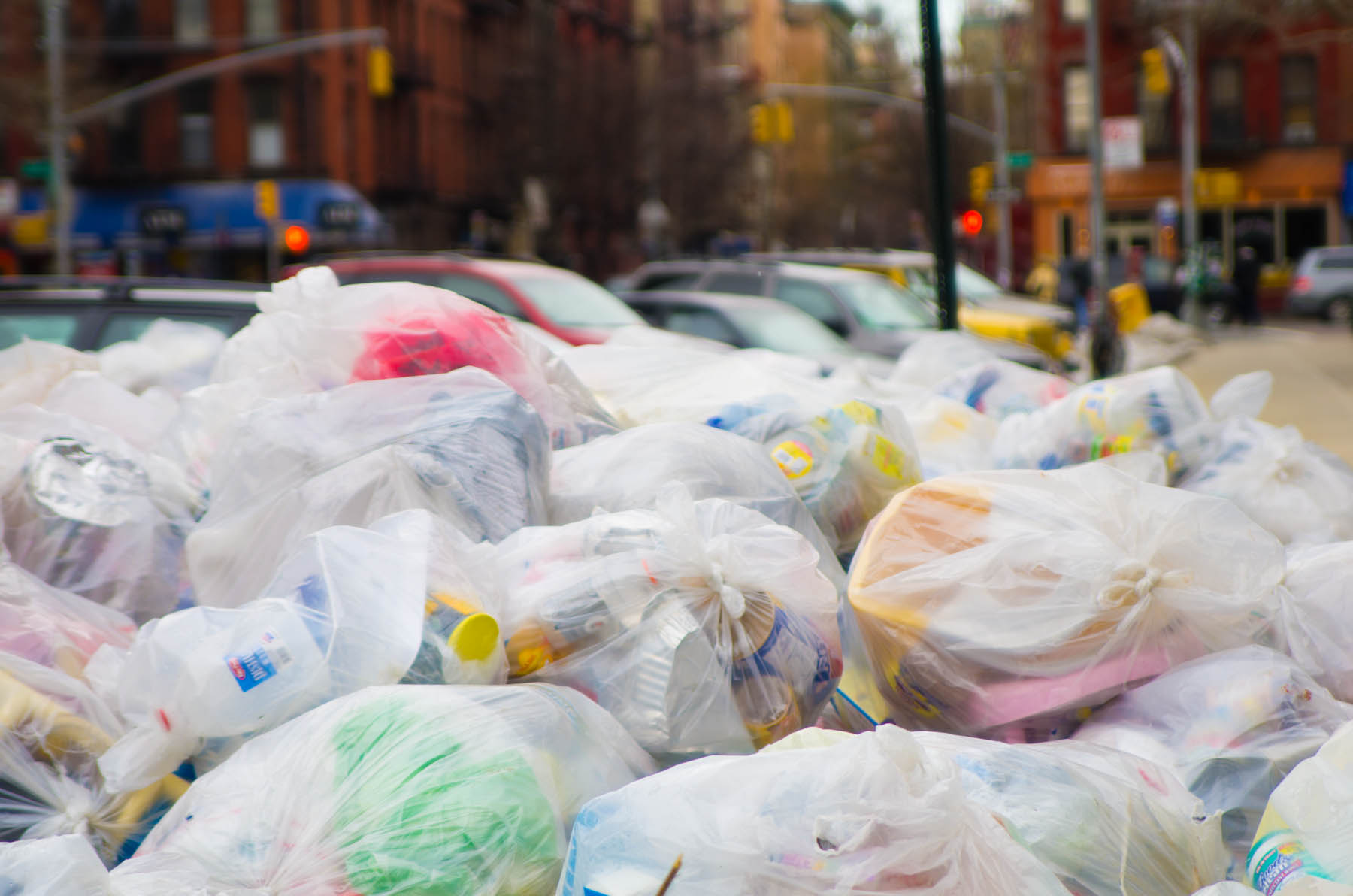We have the world’s largest economy. The world’s strongest military. The world’s best women’s soccer team. And the world’s biggest ball of twine.

America loves to collect superlatives. But here’s one to be not so proud of: The United States is the world’s most wasteful country. And the runner-up isn’t even close.
According to a new report from Verisk Maplecroft, a global risk-assessment and consulting firm, the United States accounts for only about 4 percent of the world’s population yet generates 12 percent of the planet’s municipal solid waste (MSW), better known as garbage. Each American produces more than 1,700 pounds of it a year, the report’s authors found, adding up to 239 million tons annually.
Do China and India generate more trash? Yes, together they’re on the hook for 27 percent of the world’s garbage. But those two countries also have a combined population of 2.7 billion, to our relatively paltry 327 million. The math is mortifying: With more than eight times as many people as we have, China and India manage to produce just a little more than twice the amount of garbage that we do. According to the report, American citizens generate more than three times the amount of waste that their Chinese counterparts do.
Granted, this is a global problem: Verisk Maplecroft’s analysts calculate that human beings produce more than 2.1 billion tons of MSW every year, “enough to fill 822,000 Olympic-size swimming pools.” But of the 194 countries whose waste streams it studied, the United States stood out in several worrisome ways.
Among them is what the authors characterize as America’s “lack of commitment to offsetting its waste footprint.” In the course of their research, they looked not only at how much and what kind of waste each country generated but also at what steps individual nations were taking to manage their waste streams: things like rates of recycling, modes of collection and disposal, promotion of circular material flows, and commitment to international treaties. In this respect, they write, “the US falls well behind other industrialized nations.” They compare our MSW recycling rate of 35 percent with Germany’s rate of 68 percent, then go on to assert that we are “the only developed nation whose waste generation outstrips its ability to recycle, underscoring a shortage of political will and investment in infrastructure.”
Again, not exactly the kind of superlative America is looking for: “Most Lacking in Political Will and Investment in Infrastructure.” But when global consulting and risk-assessment firms hand you lemons, don’t throw them straight into the landfill — instead, make sustainability lemonade! That’s the way we should be thinking of our poor ranking in the Verisk Maplecroft report: as a golden opportunity embedded (deep) inside an embarrassing critique.
Fortunately, many Americans are already thinking along these lines. Not too long ago, the concept of zero waste was just that: a concept — a sustainability ideal to which individuals, businesses, and communities could aspire, even if deep down they thought it impossible. Now zero waste has become something else altogether: a goal that cities and entire countries are setting for themselves and taking concrete steps to achieve. San Francisco, San Diego, and New York are aiming to break the trash-to-landfill cycle completely, and permanently, by 2040 or sooner. Like other cities moving toward a zero-waste future, they’ve had to modify a few plans and push back a few deadlines along the way. But they haven’t given up. Instead, these cities have approached each setback as a problem to be solved, not as an insurmountable barrier.
As more and more of our cities, towns, and communities ban Styrofoam and plastic bags, Americans are realizing that it’s really not that hard to live without these environmentally harmful items. And our growing disenchantment with plastic is occurring simultaneously with an entrepreneurial wave of new businesses that eschew conventional packaging —or even any kind of packaging—for their products. While reducing their own waste streams, they’re also showing consumers and competing businesses a new way forward, growing the market for zero-waste lifestyles and (one hopes) spawning plenty of imitators.
These are positive trends, but not one of them by themselves has the power to lift us from our lowly state. That will take a revolution in our attitudes: a radical transformation of our priorities that results in the development of a circular economy where reuse is built in to every business model, city plan, and household budget. We may be a long way from leading the world in promoting and exemplifying zero-waste principles, but that doesn’t mean we can’t get there, or that we shouldn’t try. The one and only good thing about being the worst at something is that you have nowhere to go but up.
We don’t have a paywall because, as a nonprofit publication, our mission is to inform, educate and inspire action to protect our living world. Which is why we rely on readers like you for support. If you believe in the work we do, please consider making a tax-deductible year-end donation to our Green Journalism Fund.
Donate